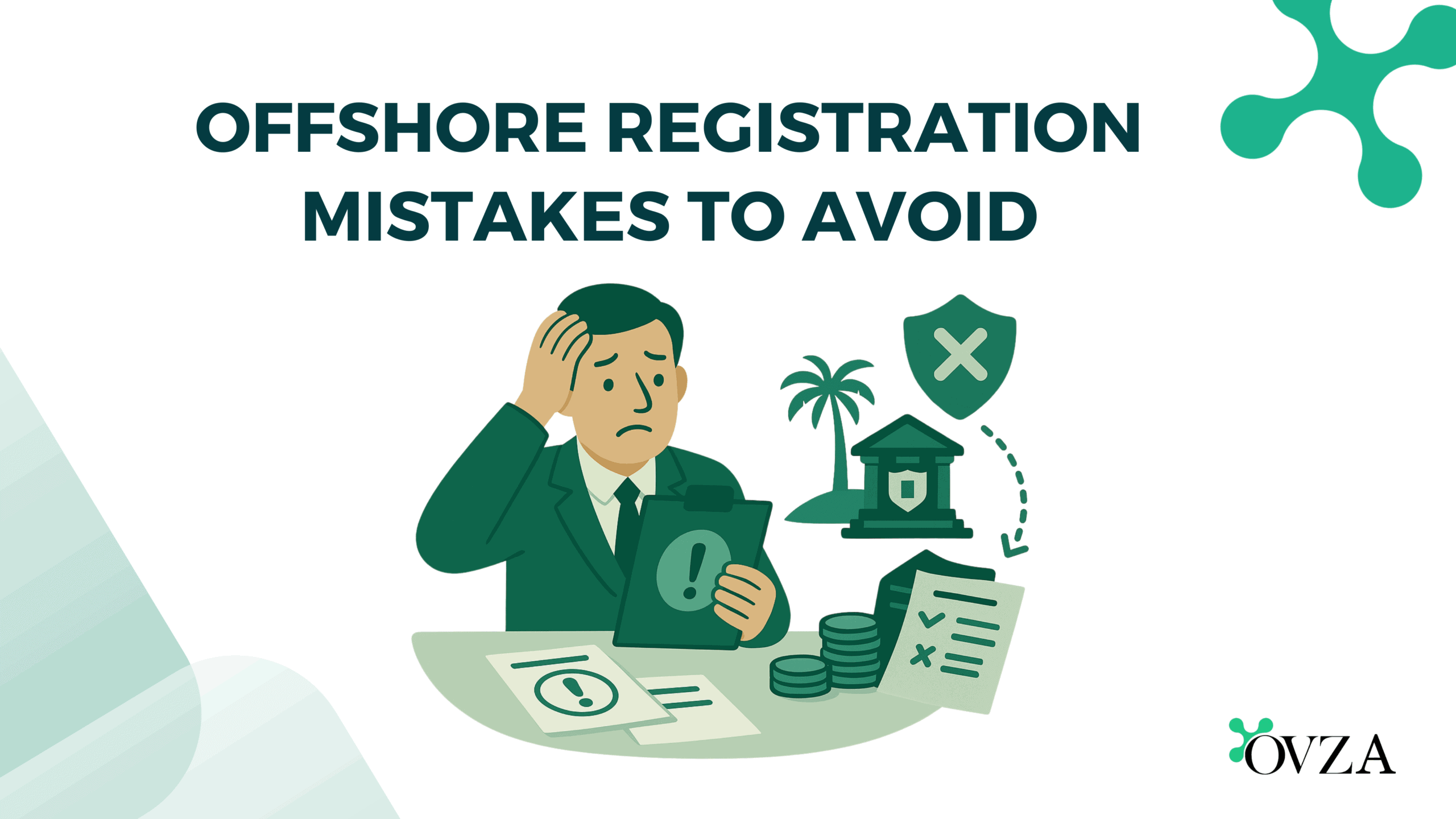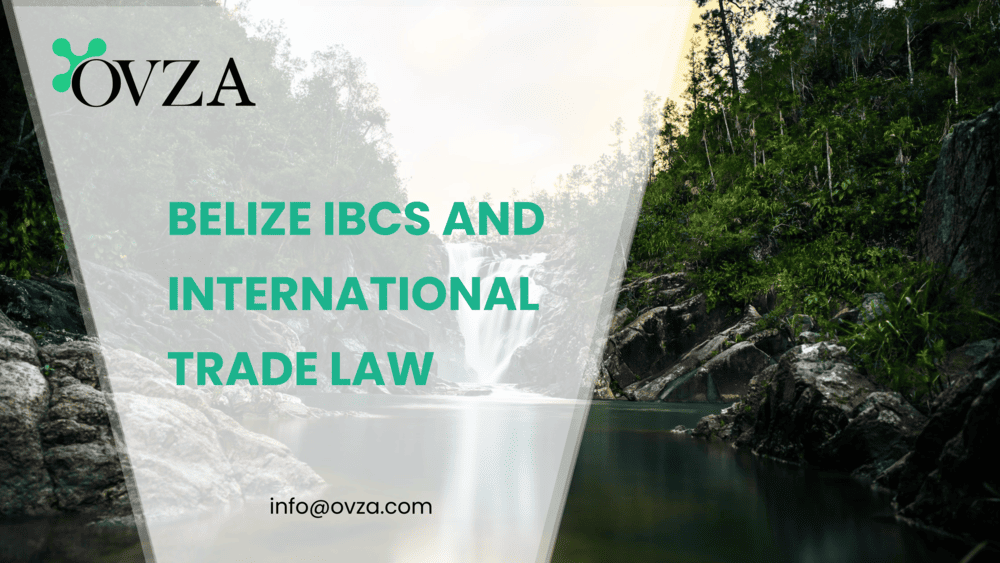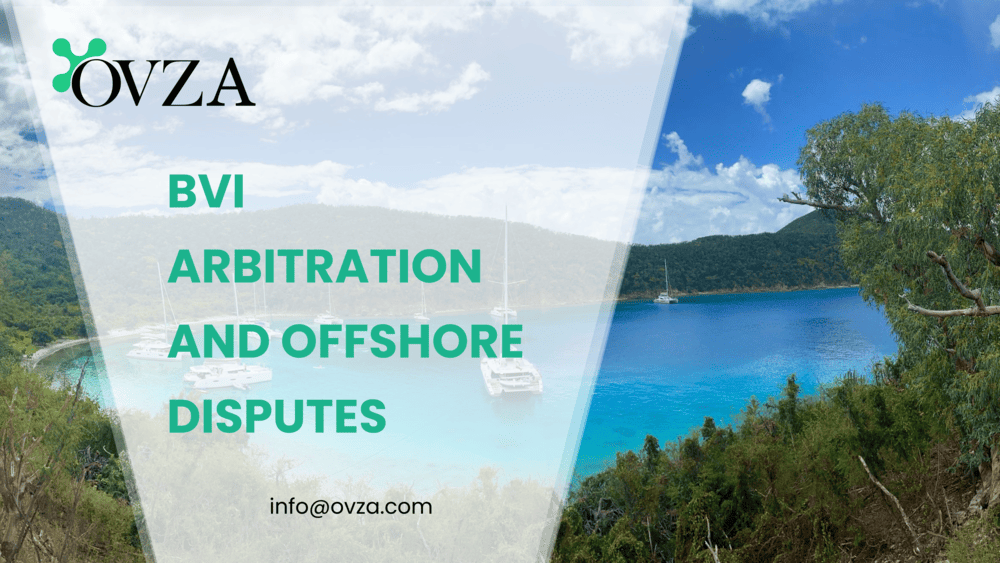Avoiding offshore registration mistakes requires legal precision, jurisdictional awareness, and compliance with evolving global standards.Offshore incorporation offers strategic advantages when structured correctly, but the process is often undermined by critical legal and procedural errors. Understanding the principal offshore registration mistakes to avoid requires familiarity with international compliance norms, domestic incorporation statutes, and the extraterritorial reach of tax and financial regulations.
Legal Missteps and Regulatory Risks
A common error arises in the selection of jurisdiction. Many incorporate in offshore financial centers without evaluating treaty networks, regulatory reputation, or the presence of blacklisting risks. For example, entities formed in jurisdictions identified by the EU’s list of non-cooperative tax jurisdictions may be subject to withholding taxes, banking restrictions, or heightened due diligence. Selecting a jurisdiction without regard to future reporting obligations or banking access can render an offshore structure legally valid but practically inoperable.
Another fundamental misstep involves the misunderstanding of economic substance laws. Jurisdictions such as the British Virgin Islands and Cayman Islands have implemented legislation requiring companies engaged in certain activities to demonstrate a physical presence and income-generating operations within the territory. The BVI Economic Substance (Companies and Limited Partnerships) Act, 2018 sets out compliance thresholds for holding companies, finance businesses, and intellectual property entities. Failure to comply may result in administrative penalties and public disclosure of non-compliance. Failing to account for these obligations at the registration stage undermines the long-term viability of the offshore entity.
Misalignment between the declared purpose of the company and its actual operations also constitutes one of the more serious offshore registration mistakes to avoid. This is particularly problematic when opening offshore bank accounts, as banks require detailed business justifications aligned with the company’s registered objects. Discrepancies between registered activities and transactional behavior may lead to account freezes or de-banking, especially in high-risk sectors such as cryptocurrency or digital marketing.
In addition, improper documentation during the incorporation process can compromise both legal standing and access to corporate services. Missing or incorrectly prepared registers of directors, shareholders, or UBOs may prevent legal recognition of ownership and obstruct contractual capacity. Even where nominees are used, failure to maintain valid declarations of trust or internal resolutions risks invalidating corporate authority. The importance of maintaining complete and updated internal records is often underestimated, yet it forms the basis for corporate control and dispute resolution.
Tax compliance constitutes another area where mistakes at the incorporation phase can result in downstream liability. While many jurisdictions do not impose income tax on offshore entities, the home country of the beneficial owner may assert tax residency based on management and control principles. This is reflected in guidance issued under the OECD’s Base Erosion and Profit Shifting (BEPS) project, which encourages countries to tax entities that are effectively managed within their borders. Establishing proper governance procedures, such as board meetings held offshore and appointment of local directors, is essential to rebut residency claims and prevent exposure to CFC rules.
Governance Failures, Inadequate Legal Review, and Misuse of Nominees
One of the more overlooked offshore registration mistakes to avoid is the appointment of inactive or legally deficient directors. Offshore companies must maintain a functioning board or management body that can exercise authority consistent with the laws of incorporation and any governing shareholder agreements. Improper director appointments—particularly those involving individuals who are unaware of their legal duties or who reside in jurisdictions that create conflicting tax residency—may lead to challenges in court or regulatory inquiries.
Where nominee directors or shareholders are used, failure to establish valid and legally enforceable nominee agreements poses a significant risk. These instruments must comply with the governing law of the jurisdiction in which the company is incorporated and must be executed with attention to local formalities. Nominee arrangements that are not documented properly may be deemed ineffective or construed as attempts to obscure beneficial ownership, especially under the scrutiny of laws such as the FATF Recommendations and local AML legislation. In jurisdictions that maintain beneficial ownership registers—whether private or semi-public—the accuracy and contemporaneity of such records are essential to sustaining legal standing.
Additionally, failing to conduct legal review of the Memorandum and Articles of Association is a recurring issue. Many offshore incorporations proceed using generic templates that do not reflect the true intentions of the beneficial owners or the operational design of the enterprise. This oversight can lead to governance deadlocks, conflicting authorities, or unenforceable shareholder agreements. For example, rights of first refusal, quorum requirements, and voting thresholds must be expressly stated in the corporate constitution to be enforceable.
Legal consequences also arise where the company engages in regulated activities without securing the necessary licenses. This includes areas such as fintech, remittance, investment advisory services, and certain e-commerce activities. Even where the offshore jurisdiction does not require licensing, the location of the customer base may trigger licensing obligations under extraterritorial application of national law. For instance, providing financial services to EU residents may invoke the MiFID II framework or the consumer protection regulations applicable in individual member states.
Banking difficulties are often the downstream result of these missteps. Offshore entities formed with generic or incomplete documentation frequently face rejection by banks and financial institutions due to enhanced due diligence standards. Institutions prioritize clear ownership structures, licensed activities, and alignment between declared purpose and actual use. Offshore companies with fragmented governance or opaque operations are more likely to be denied access to correspondent banking networks.
Another frequent error involves non-compliance with post-incorporation obligations. Even in jurisdictions with minimal ongoing reporting requirements, companies are generally required to maintain registers, issue share certificates, appoint directors, and adopt resolutions for major actions. Neglecting these formalities may not only violate the law of incorporation but also render the company vulnerable in litigation or regulatory proceedings. Companies that operate across jurisdictions must also account for local compliance expectations, even if they are not expressly stated in the law.
Cross-Border Risks and the Importance of Legal Structuring
Cross-border enforcement risks represent one of the most serious consequences of faulty offshore incorporation. When the corporate structure is inconsistent, under-documented, or legally deficient, the ability to defend the entity’s legal standing in a foreign jurisdiction is compromised. Courts may disregard the corporate form under doctrines such as “piercing the corporate veil” or “substance over form,” especially where the offshore company has no demonstrable independence or is used to conceal the identity of controlling persons. The legal analysis of these risks is especially relevant where asset holding entities are involved in disputes, as courts may examine the internal governance and actual operations to determine whether the company deserves separate legal recognition.
One of the most overlooked offshore registration mistakes to avoid is the failure to consider tax information exchange regimes. Under frameworks such as the OECD’s Common Reporting Standard (CRS), offshore financial institutions are required to identify and report information about entities controlled by residents of participating jurisdictions. A structure that fails to anticipate these obligations may expose its principals to unintended tax reporting and audits in their home jurisdictions. In this context, the proper classification of the offshore company—as a passive or active entity under CRS definitions—can determine whether information is reported and to whom.
In addition, failure to account for Controlled Foreign Corporation (CFC) rules can lead to unexpected tax liabilities. These rules, adopted in many G20 and OECD countries, permit home tax authorities to tax the income of an offshore company as if it were directly earned by the controlling shareholders, unless the company satisfies local substance or active business tests. Understanding the interplay between CFC legislation and the governance of the offshore company is essential at the time of incorporation. Legal planning must ensure that the company operates at arm’s length and retains documented control and oversight to avoid triggering deemed income provisions.
Finally, insufficient planning around exit strategy or ownership transfer can lead to adverse outcomes. Whether through sale, merger, liquidation, or dissolution, the legal mechanics of winding down or divesting an offshore company must be incorporated into its formation documents. Omitting these considerations may result in disputes among shareholders, regulatory delays, or the loss of access to corporate funds. Structured mechanisms for resolution, buy-out, or successor appointment are necessary safeguards in cross-border corporate law and should be drafted during or shortly after incorporation.
Conclusion
The range of offshore registration mistakes to avoid illustrates the complexity of establishing legally compliant and operationally viable offshore structures. Errors made at the initial stage of incorporation—whether in documentation, jurisdiction selection, governance, or legal purpose—can have significant legal and financial consequences. As global transparency norms tighten and banking institutions enforce rigorous compliance standards, the importance of precision in offshore structuring cannot be overstated.
Careful legal planning, ongoing documentation, and alignment with regulatory frameworks across multiple jurisdictions are essential to preserving the benefits of offshore incorporation. To avoid liability and ensure long-term viability, offshore incorporation must be approached not as an administrative formality but as a legal event governed by evolving global standards.
Disclaimer: The information provided on this website is intended for general reference and educational purposes only. While OVZA makes every effort to ensure accuracy and timeliness, the content should not be considered legal, financial, or tax advice.












